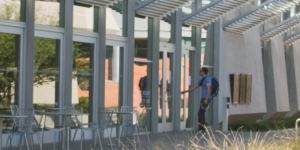In response to strong student and employer demand, a growing number of law schools have in recent years launched LL.M. degree programs that specialize in social justice. As calls across civil society grow louder for a more inclusive form of capitalism, affordable housing, fair wages, welfare and rights for workers, law schools are launching programs that seek to champion positive change in society.
The degrees cover myriad practice areas from civil rights and public interest to tax and trade policy. Social justice LL.M.s explore economic, legal and social contexts so that students might be empowered to target all forms of inequality.
Students will also often participate in legal clinics at their law schools, putting their legal theory into practice while helping clients to access justice in cases related to asylum and human rights.
A very wide range of career paths are open to LL.M. students who opt for this rewarding specialism. Some graduates will go into legal practice in social justice and related areas such as family, criminal or social welfare law. Others pursue social justice at international charities and NGOs, or seek to reform the law at institutions such as the Law Commission for England and Wales.

UCL puts on an LL.M. in Law and Social Justice program that attracts students from a wide variety of backgrounds and geographical locations. The program is interdisciplinary in nature, touching on the law but also public policy and economics. Students develop an understanding of how the law interacts and shapes society, thinking critically about issues such as race, gender and injustices more widely.
View School Profile
At NYU Law, students can apply for the Transitional Justice Leadership Program, a selective course of study that is pursued alongside the LL.M. degree at NYU. Students complete a year-long internship with an international organization such as an NGO. Students can also take classes at NYU’s world-renowned Institute for International Law and Justice, and the Center for Human Rights and Global Justice. NYU is one of the highest ranked law schools in the world.
View School Profile
The University of Essex’s School of Law offers an LL.M. in Economic, Social and Cultural rights. It teaches students about the status and limitations of the law, but also the broader economic, political and social processes behind it. There is a particular emphasis on international human rights, and how they can make a difference to public policies and laws on health, education, housing, and food security.
View School Profile
The SOAS LL.M. in Human Rights, Conflict and Justice is a specialism that covers issues at the heart of major public debates. The core modules are in international human rights and criminal law, as well as refugee and migration law. There are also courses on reconciliation and reconstruction in conflict-stricken societies. At the SOAS Centre for Human Rights Law, students can get involved with research too.
View School Profile
The Canada-based University of Ottawa Faculty of Law offers an LL.M. Concentration in Law and Social Justice that focuses on international law and human rights. Students can deepen their studies by taking elective options in areas such as children’s rights. A unique aspect of this program is the ability to take part in the school’s Indigenous Law Clinic, which provides research materials for indigenous communities in Canada. Students are placed in an indigenous community to investigate questions relating to indigenous law.
View School Profile
Cornell Law School puts on a comprehensive human rights curriculum for LL.M. students who wish to improve social justice. Beyond the theory, they can take part in a range of pro bono clinics that address prisoners’ rights, women’s rights, the death penalty, and the right to self-determination. There’s also a Labor Law Clinic, and the Asylum and Convention Against Torture Clinic. Students can become powerful forces for change and equal economic opportunity, racial justice and fair housing.
View School Profile
At Miami Law, LL.M. students can take a Concentration in Social Justice and Public Interest, which attracts students interested in social inequality and power differentials, especially socioeconomic status, identity and civil rights. Students will deepen their understanding of social, racial, gender and environmental justice, alongside modules in civil and human rights. Elective options are available in identity rights, economic justice as well as government and political process.
View School Profile
The Franklin Pierce School of Law puts on a niche program, the LL.M. in International Criminal Law and Justice. Students will explore issues ranging from terrorism to crimes of war, drug laundering, human and weapons trafficking, human rights, white-collar and cybercrime. An online program, students can complete the degree alongside a full-time job. Graduates go on to work in a range of careers related to social justice, for example becoming an immigration lawyer, human rights advocate, intelligence analyst or tribunal judge.
View School ProfileThe School of Law at the University of Leeds introduced its LL.M. in Law and Social Justice in 2018. The core modules focus on the ideological and structural contexts that lead to injustice. Students also investigate inequalities around disability, gender, race and class, both nationally and transnationally. Students can tailor the course with elective modules in such subjects as health, social care and how to build resilient and just communities.
View School Profile
The University of Connecticut runs the Human Rights and Social Justice LL.M. program. Students study the global human rights movements, and gain specialized credentials and skills that are needed to succeed in global business, social policy work and to improve access to justice worldwide. Students can also participate in the Asylum and Human Rights Clinic at the law school, putting their legal theory into practice while helping clients to access justice.
View School ProfileRelated Articles
‘How my LL.M. From USC Gould Turbocharged my Career’
Jul 17, 2024
Moritz Reinhard, an LL.M graduate of USC Gould School of Law, has turbocharged his career by pursuing an advanced legal degree in the U.S. His decision to attend USC was fueled by various compelling factors: including personal connections, academic freedom, and the allure of California.










